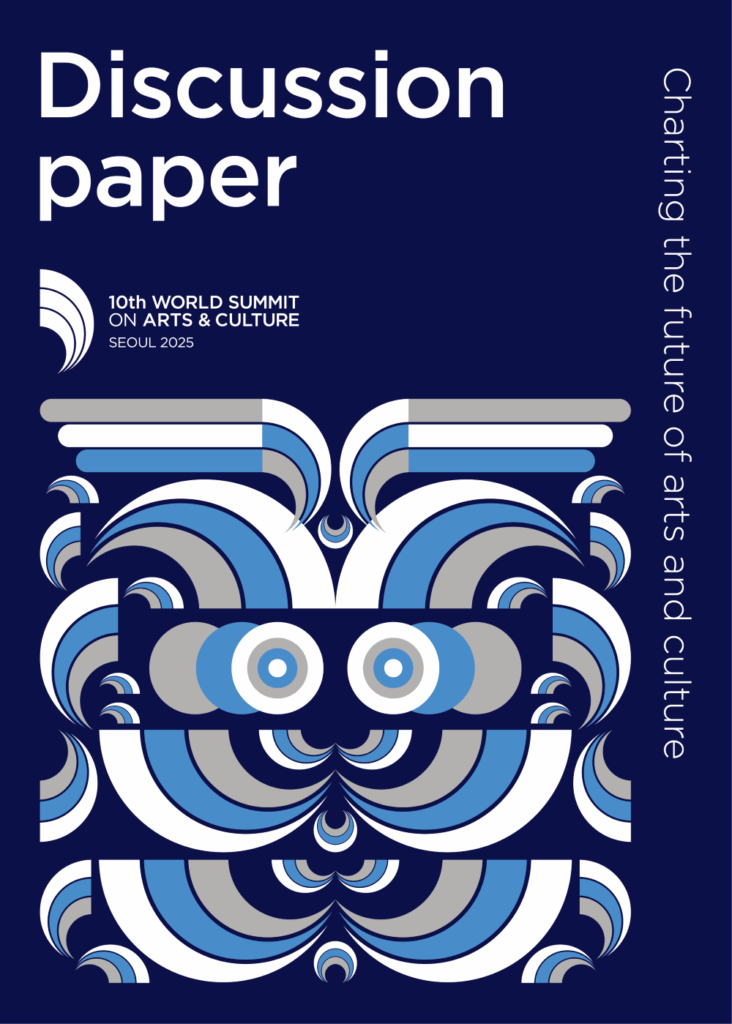
My essay “Participation is a Spectrum” is now live—in English, Spanish, and Korean! — I’m honored to have contributed to the 10th World Summit on Arts and Culture Discussion Paper, “Charting the Future of Arts and Culture”, alongside an incredible group of cultural thinkers and practitioners from around the world.
The discussion paper explores urgent and complex questions facing our sector: from the promises and perils of AI, to the ways we gather, exchange ideas, and shape policy. My essay focuses on how we understand cultural participation—not as a fixed goal, but as a dynamic spectrum shaped by power, agency, and collective imagination.
Grateful to IFACCA and ARKO for creating space for this global dialogue. Click here to read all nine essays online now.
10th World Summit Discussion Paper
A Discussion Paper is developed, published and shared online prior to each World Summit to introduce participants, prospective delegates and the broader international community to the Summit programme theme and key concepts and issues.
This Discussion Paper: Charting the future of arts and culture sets out to provoke critical reflection on these ideas and issues that affect culture and the cultural and creative sector, ranging from the exciting and daunting aspects of technology and AI, and their anthropophagic nature; to how we gather, exchange ideas, and participate; and the types of agency we need to ensure a future with diverse narratives and worldviews. The nine essays highlight key challenges facing the arts and cultural sector and offer insights for shaping a resilient future.
Discussion Paper authors
This Discussion Paper brings together 10 thought leaders from around the world who were invited to share their perspectives on these issues and consider actions that governments and people could and should take, presented through nine essays by:
- Dr Jazmín Alejandra Beirak Ulanosky (Spain);
- Ms Sarah Abdu Bushra (Ethiopia);
- Ms Paula Carr and Mr Haniko Te Kurapa (Aotearoa New Zealand);
- Mr Mauricio Delfin (Peru);
- Mr Lars Ebert (Belgium);
- Ms Marcela Flores Méndez (Mexico);
- Dr Zune Lee (Republic of Korea);
- Prof Dr Nishant Shah (India);
- Ms Marichu G. Tellano (The Philippines).
These authors bring diverse perspectives and lived experiences from across the arts and cultural ecology, working in public institutions, academia, or civil society organisations, and as Indigenous and cultural leaders, artists and cultural workers.